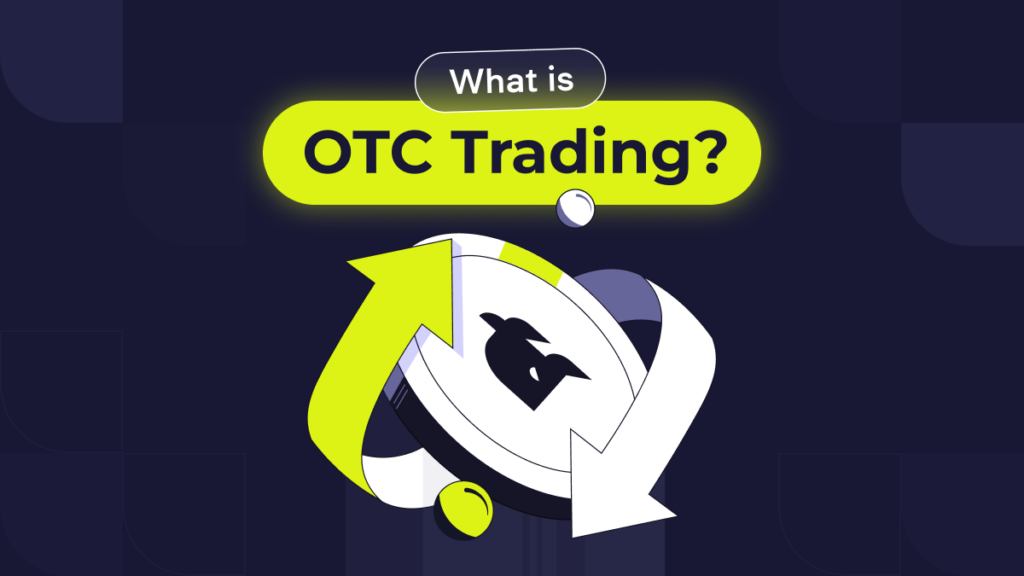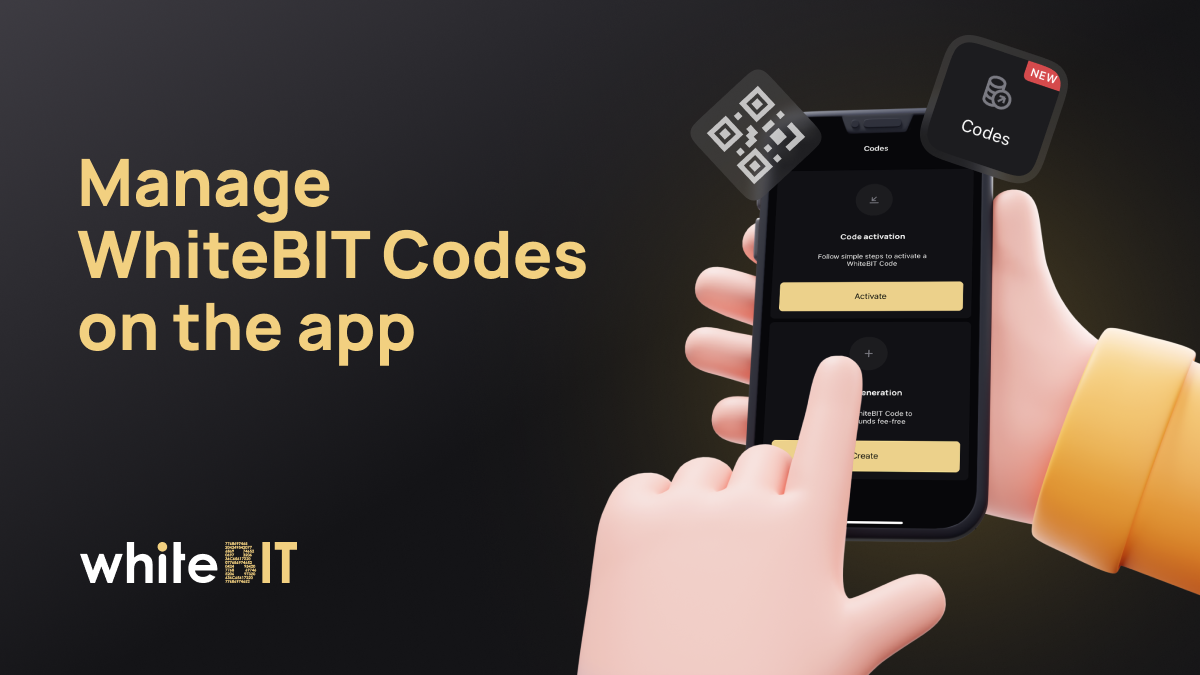What Is OTC Trading in Crypto?

Content
OTC (Over-the-Counter) trading in the cryptocurrency market refers to the private transactions conducted directly between two parties, bypassing the traditional public exchange systems. This form of trading is pivotal, especially for high-value transactions that might otherwise impact market prices if conducted on open exchanges. OTC trading provides privacy, discretion, and direct negotiation of crypto prices, which can be crucial for institutional investors and high-net-worth individuals looking to execute large trades.
In the current crypto landscape, the importance and relevance of OTC trading cannot be overstated. The need for crypto OTC trading platforms has grown as the crypto market matures and attracts more institutional participants. These participants often require the ability to execute significant transactions without the associated risks of price slippage or market impact. Furthermore, the confidentiality offered by over the counter crypto trading ensures that strategic trades do not tip off the market prematurely, preserving the benefits of any planned positioning while aligning with the evolving regulatory frameworks and compliance requirements. OTC trading, therefore, not only supports the liquidity of cryptocurrencies but also enhances the stability and maturity of the overall market.
What is Crypto OTC Trading?
Crypto OTC (Over-the-Counter) trading is a method where cryptocurrency transactions are made directly between two parties without the use of a public exchange. This type of trading typically occurs through a broker or a crypto OTC trading desk, which helps negotiate deals between buyers and sellers discreetly. The primary allure of OTC trading lies in its ability to facilitate large transactions without affecting the public market price, providing privacy and avoiding significant price slippage. Now let’s learn what is crypto OTC trading.
Crypto OTC trade stands in contrast to traditional exchange trading in the crypto market, where trades are conducted on a public platform, and prices are set by visible market demand and supply. In an OTC setup, prices are negotiated privately, protecting participants from the volatility of the open market and allowing for more controlled trading environments. Additionally, while exchange trading provides a transparent and regulated space, crypto Over-the-Counter trading offers flexibility and discretion, catering especially to high-net-worth individuals and institutional traders.
Key terminology related to OTC trading includes “liquidity providers” (entities that supply the market with enough volume to facilitate trades without major price changes), “bid-ask spread” (the difference between the highest price a buyer is willing to pay and the lowest price a seller is willing to accept), and “counterparty risk” (the risk that the other party in the transaction may default on their obligations). Understanding these terms is crucial for effectively navigating the OTC trading landscape.
How Does OTC Crypto Trading Work?
OTC (Over-the-Counter) crypto trading operates through a process that bypasses traditional public cryptocurrency exchanges, facilitating direct transactions between parties. Typically, the process begins with a buyer or seller initiating contact with an OTC broker or desk. These brokers or desks act as intermediaries who maintain networks of potential buyers and sellers. After establishing the buyer’s or seller’s needs, the broker searches for a suitable counterparty willing to complete the transaction at an agreed-upon price. Once both parties agree to the terms, the broker helps finalize the transaction, ensuring that the exchange of cryptocurrencies and payment is smooth and secure.
Key participants in the OTC crypto market include OTC brokers or desks, which specialize in finding counterparties for trades and facilitating the negotiation and execution of deals. Liquidity providers, often large financial entities or crypto miners, play a vital role by supplying the market with enough volume to execute large trades without significantly impacting the crypto assets market price. Finally, the primary clients of OTC trading services are typically institutional investors, high-net-worth individuals, and large corporations seeking to trade substantial amounts of cryptocurrencies discreetly and efficiently. This market structure ensures that large transactions can occur without the typical constraints and risks associated with public crypto exchanges.
Types of OTC Trading in Crypto
In the cryptocurrency market, OTC (Over-The-Counter) trading offers an alternative to centralized exchanges and includes forms like chat trading and OTC desks. Chat trading occurs through direct communication on messaging apps or chat rooms, allowing for quick, informal negotiation directly between parties. It is favored for its flexibility and speed but requires a high level of trust among participants due to the informal and unregulated nature of the exchanges.
OTC desks, on the other hand, provide a more structured approach to OTC trading, often operated by financial firms or large exchanges. These desks cater to institutional clients or high-net-worth individuals needing to execute large-volume trades discreetly without impacting market prices. OTC desks offer a secure, regulated environment with professional brokering and access to deep liquidity, though they may involve higher costs and longer transaction times compared to chat trading.
Benefits of Cryptocurrency OTC Trading
Cryptocurrency OTC (Over-The-Counter) trading offers several compelling benefits, particularly for those dealing in large volumes of digital assets. One of the foremost advantages is the enhanced privacy and confidentiality it provides. Transactions occur away from the public eye, ensuring that sensitive trading information remains between the parties involved. This privacy is crucial for high-net-worth individuals and institutional traders who prefer to keep their market activities and strategies undisclosed to avoid influencing market conditions or attracting undue attention.
Another significant benefit of OTC trading is the reduction in price slippage. In public exchanges, large orders can significantly move the market price of a cryptocurrency, often to the disadvantage of the seller or buyer. OTC trading allows large orders to be filled at a predetermined price, minimizing the impact on the market and ensuring the price remains stable throughout the transaction. Additionally, the ability to trade large volumes without affecting the market price protects the trader from adverse price movements. It provides liquidity that might not be readily available on public exchanges. However, Bitcoin (BTC) is quite a liquid asset on large exchanges that many seek to purchase.
Moreover, OTC trading is highly customized and flexible, tailored to meet the specific needs of each transaction and its participants. Traders can negotiate terms directly and choose from various payment methods and settlement options, allowing for a trading environment that aligns with individual strategies and requirements. This level of customization makes OTC trading a preferred choice for those seeking to execute large trades with specific conditions not typically accommodated by standardized exchange platforms.
Drawbacks of Using OTC
The Over-The-Counter (OTC) trading of cryptocurrencies, while beneficial for large transactions and privacy, also comes with several significant drawbacks:
Lack of Transparency
OTC trading does not occur on public exchanges, meaning the transactions are not visible on public order books. This lack of transparency can lead to several issues:
- Price Discovery: Without public records of transactions, it becomes difficult for other market participants to understand true market prices, leading to potential inefficiencies in price discovery.
- Market Manipulation: The opacity of OTC markets can make them more susceptible to manipulation, as large trades and their effects on the market are not visible to other traders or regulatory bodies.
Potential for Higher Transaction Costs
While OTC trading can potentially offer better pricing for large transactions, it can also come with higher transaction costs:
- Broker Fees: OTC trades typically require an intermediary or broker, who may charge higher fees than standard trading platforms.
- Negotiation Costs: Negotiating a trade, especially a large one, can be time-consuming and costly, requiring legal and financial consultations.
Counterparty Risk
In OTC trading, the risk associated with the other party failing to fulfill their transaction obligations (counterparty risk) is heightened:
- Credit Risk: Since trades are not cleared through a centralized system, there’s a higher risk of a counterparty defaulting on a payment or delivery of assets.
- Settlement Risk: There may be delays or failures in settling the trade, which can be problematic, especially in a fast-moving market where asset values fluctuate dramatically within short periods.
Limited Regulation and Oversight
OTC markets are generally less regulated than exchange-based markets, which can pose additional risks:
- Regulatory Exposure: The lack of strict regulatory oversight can expose participants to fraudulent activities and scams.
- Legal Recourse: Given the less regulated nature of OTC trading, the avenues for legal recourse may be limited or unclear in case of disputes or fraud.
These factors make it crucial for participants in OTC trading to carefully assess their risk management strategies and ensure they engage with reputable and reliable counterparties. Additionally, despite the potential drawbacks, the continued maturation of the cryptocurrency markets might see improvements in how OTC trades are managed, reported, and regulated.
OTC Crypto Trading Strategies
OTC crypto trading strategies typically leverage the unique advantages of private, direct transactions. Major players in this market often use block trades to execute large transactions that minimize market impact and price slippage. Timing strategies are also critical, with traders opting to move large volumes during market conditions that optimize price stability and potential returns. Arbitrage opportunities are explored by comparing OTC rates to public exchange prices, capitalizing on discrepancies without affecting broader market prices. Additionally, OTC traders may negotiate derivative contracts or structured products tailored to their specific risk and return profiles, allowing them to discreetly hedge positions or speculate on future price movements. These strategies combine the need for discretion with effective risk management, aiming to secure favorable terms while protecting against the volatility inherent in the cryptocurrency markets.
Regulatory Landscape for OTC Trading
The regulatory landscape for OTC (Over-the-Counter) crypto trading is complex and varies significantly across different jurisdictions. As a largely decentralized market, OTC trading of cryptocurrencies faces a patchwork of regulations that influence how transactions are conducted globally.
ОТС trading is gaining popularity among institutional audience. WhiteBIT offers such services for institutional clients as Market-Making program, Crypto-as-a-Service, Liquidity Provision, etc. Learn more following the links.
Currently, most countries focus on Anti-Money Laundering (AML)) and Know Your Customer (KYC) regulations to govern the space. These regulations require OTC brokers and trading desks to implement strict identity verification processes for their clients to help prevent financial crimes. For instance, in the United States, OTC trading desks are typically registered as money services businesses (MSBs) with the Financial Crimes Enforcement Network (FinCEN), obliging them to comply with federal AML and KYC requirements. Similarly, in the European Union, OTC trading desks must adhere to directives like the Fifth Anti-Money Laundering Directive (5AMLD), which enhances transparency to tackle terrorism financing and money laundering.
Furthermore, some countries have specific licensing requirements for OTC trading platforms and brokers, aiming to align them more closely with traditional financial service providers. As the cryptocurrency market matures, there is a growing push towards more comprehensive regulatory frameworks to include OTC trading within the broader financial regulatory system, ensuring consumer protection and market integrity. This evolving regulatory environment necessitates continuous participant monitoring to remain compliant and navigate potential legal challenges effectively.
Over the Counter Trading VS Exchange
Over-the-counter (OTC) trading and crypto exchange trading represent two distinct approaches to buying and selling cryptocurrencies, each catering to different market participants with specific needs.
OTC trading is characterized by its direct, private transactions between two parties, often facilitated by brokers or specialized OTC desks. This method is favored by institutional investors and high-net-worth individuals who need to execute large transactions discreetly without influencing market prices. OTC trading offers greater privacy and minimizes price slippage by avoiding the public order books of exchanges. It also allows for personalized service and flexible negotiation of terms, such as price and settlement dates, tailored to the traders’ needs.
On the other hand, crypto exchange trading occurs on public platforms where individuals and entities buy and sell cryptocurrencies through an open and transparent order book. This method is accessible to all levels of traders, from beginners to professionals, and provides high liquidity and real-time price discovery. However, due to their visibility, large transactions on these platforms can significantly impact market prices, which can disadvantage those looking to participate in crypto trading at large volumes.
Conclusion
In conclusion, OTC trading in the crypto market offers a vital pathway for large-scale traders to execute significant transactions with minimal market disruption. This trading method provides confidentiality, price stability, and flexibility for tailored, high-volume trades, making it indispensable for institutional investors and high-net-worth individuals. As the cryptocurrency landscape continues to evolve, OTC trading remains a cornerstone, ensuring liquidity and stability while accommodating the unique needs of substantial market participants. Despite the challenges posed by a less regulated environment, the strategic advantages of OTC trading underscore its enduring role in the broader ecosystem of cryptocurrency trading.
FAQ
Crypto Exchange Trading: Involves buying and selling cryptocurrencies on a public exchange platform, where prices are set by market demand and supply. Transactions are transparent and reflected in the public order book.
OTC (crypto over the counter) trading involves trading cryptocurrencies directly between two parties without the visibility of a public exchange. Prices are negotiated privately, and trades don’t immediately impact the public market price. This is how to buy crypto OTC works.
An OTC desk facilitates direct transactions between buyers and sellers, often handling large trades of cryptocurrencies. It provides a service where parties can execute substantial transactions without affecting the public market prices, offering more privacy and potentially better pricing.
The future of OTC trading in cryptocurrencies is likely to grow as institutional and large investors continue to enter the crypto market. The need for personalized service, large volume handling without market disruption, and enhanced privacy will drive its expansion. Furthermore, OTC desks might evolve as regulatory landscapes mature to meet stricter compliance standards.
Large-scale investors like institutional investors, high-net-worth individuals, and corporations can benefit from OTC crypto trading due to its ability to handle large transactions discreetly and efficiently. OTC trading minimizes market impact and price slippage, offering a more stable and often cost-effective means for large trades than standard exchanges.











